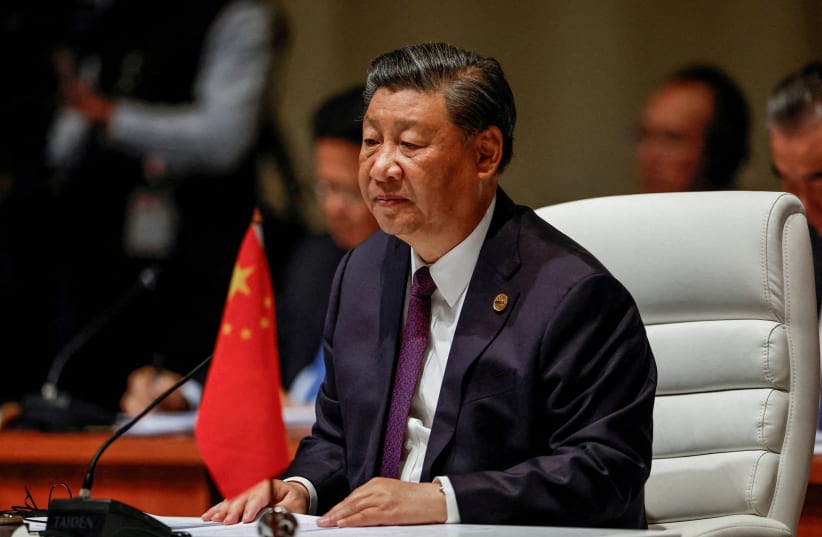China’s condemnation of a US veto of an Algerian-backed UN resolution calling for a ceasefire in Gaza is getting an increased spotlight in global media, including in the Middle East. It would appear Beijing is using the Gaza war to try to increase its influence in the region.
China has been on a charm offensive recently, slowly building itself up as a country that can be trusted by the region’s powers.
China began this effort slowly, over time. However, it jumped into the limelight when it helped bring about reconciliation between Saudi Arabia and Iran. China worked hard in 2023 to increase Saudi-Iran ties. This was a major accomplishment because it showed the world that it could accomplish something that the West could not.
How did Beijing accomplish this? It portrays itself as not having the same amount of baggage in the region as the West does. Beijing also has relatively consistent policies. For instance, it doesn’t do the Western Janus-face of lecturing the region on human rights while partnering with the most authoritarian regimes. Beijing doesn’t pretend to be something other than what it is. It also doesn’t change leadership every few years, meaning the region’s regimes can count on the Beijing of yesterday to be the same Beijing today.
Is China changing its allegiance?
China has been shifting its position slowly on the Israeli-Palestinian conflict. Several years ago, it appeared that China-Israel ties were reaching new heights. However, all that changed with increased US pressure on Israel to be wary of China as well as an increased realization in Israel that shortsighted interests in ties with China were likely to harm its ties with the West. As the US and China have become increasingly at odds over the last decade on a variety of issues, Israel was perceived by China as a low-hanging fruit in terms of critiquing Israel’s policies.

Therefore, using the recent conflict in Gaza as a cudgel against the US is an obvious win for Beijing. The Algerian resolution on Gaza gave Beijing what it wanted this week. China’s UN Ambassador Zhang Jun slammed the US veto, saying, “Given the situation on the ground, the continued passive avoidance of an immediate ceasefire is nothing different from giving a green light to the continued slaughter… The spillover of the conflict is destabilizing the entire Middle East region, leading to the rising risk of a wider war,” the BBC reported. “Only by extinguishing the flames of war in Gaza can we prevent the fires of hell from engulfing the entire region.”
Al-Ain News in the UAE has also highlighted China’s comments. Arab states are watching this development carefully. Many of them say they want a ceasefire. China can use the conflict now to gain influence and favors.
China began to increase its critique of Israel already during the May 2021 war. Hamas counted on countries such as China and Russia not to condemn October 7. It also knew it could count on Iran and Turkey, as well as Qatar, which hosts Hamas leaders. As such, Hamas has made the current genocidal war it launched against Israel a pivotal point in global relations.
Hamas knows that countries like China and Russia see the war as an opportunity to use it against the West. Hamas wants Israel to be portrayed as a Western proxy. It sees the shifting global order as an opportunity. It therefore timed its attack so that Russia would be pleased by the distraction from its conflict with Ukraine. Israel, for instance, uses the same 155 mm. shells that Ukraine has needed. Hamas and its backers and hosts likely saw October 7 as a watershed inflection point, and they will use this to shift things in the region.
Israel now faces a challenge in this regard. Countries are mobilizing to use this conflict to their benefit. Since 1948, many countries have used the Israeli-Palestinian conflict to their benefit, from the Nasser regime to Saddam and the Ayatollahs. Each benefited and profited from the conflict, and now, the more people suffer in Gaza, the more each one of them gains. The war is serving new interests against Israel and the West.
